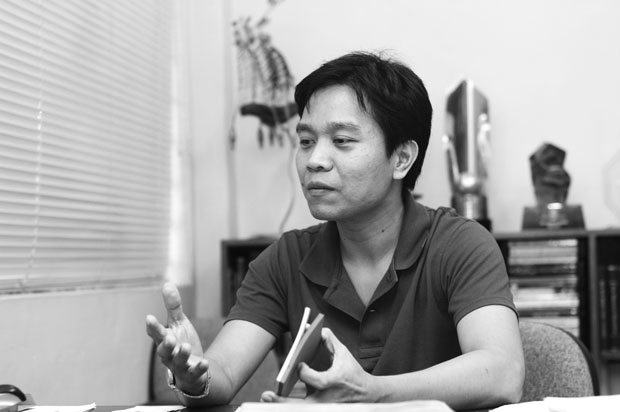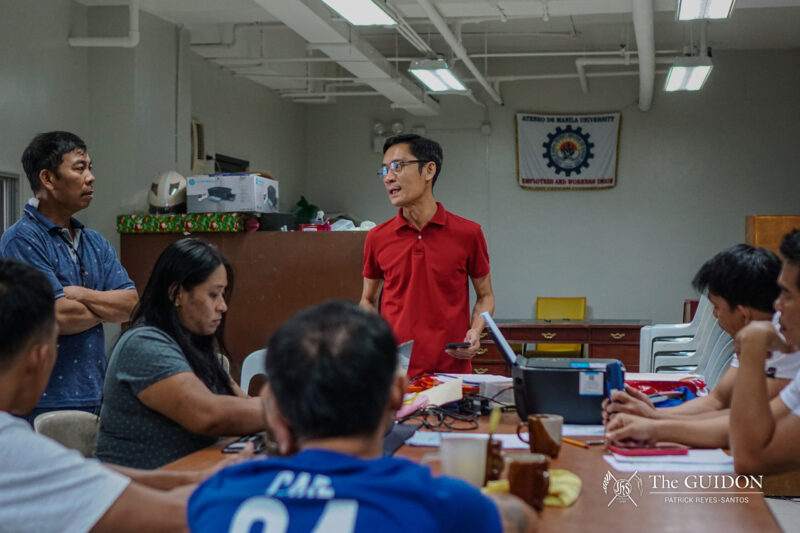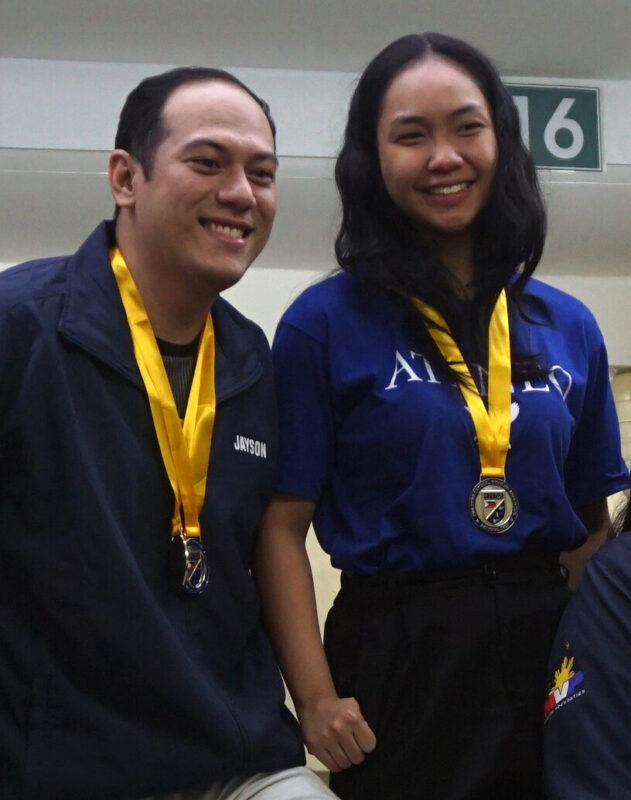THE FIRST Pambansang Kongreso sa Wika was held last August 19 to 21 at the Ricardo and Dr. Rosita Leong Hall auditorium to address problems with regard to Philippine language.
The national congress was organized by the Komisyon sa Wikang Filipino (KWF) in collaboration with the Department of Education, the Department of Interior and Local Government, the Commission for Higher Education and the Ateneo.
One of the topics discussed during the event was the KWF’s proposal to stop using the word “Pilipinas” to refer to the country.
Instead, the commission declared to return the usage of the name “Filipinas” through Resolution 13 t0 19 series of 2013 released last April 12.
According to the resolution, KWF believes that using “Filipinas” will promote the “official and modern identification of the country that recognizes its history and national development.”
In an interview with The GUIDON last July 24, Filipino Department Chair Alvin Yapan, PhD shed light on the context of the debate.
Yapan said, “Hindi naman ito (Pilipinas-Filipino debate) bagong isyu dahil ang punto lang naman dito, kung papaano [mailalahad] ang ortograpiyang Pilipino (This is not a new issue because the point only is how the Pilipino orthography is conveyed).”
In a separate interview last July 30, Matanglawin Content and Research Editor Den Noble told The GUIDON that she did not consider the issue important when “compared to other problems the country currently faces as a nation and race.”
The Pambansang Kongreso sa Wika was one of the events held on campus in celebration of Buwan ng Wika.
Featured on the first day of the congress was an opening speech by President Benigno Aquino III. KWF President Virgilio Almario also delivered an introduction to the guests of honor.
A series of plenary and parallel sessions focused on language issues took place during the last two days of the event.
On Philippine orthography
KWF President Virgilio Almario wrote an article in 1992 entitled “Patayin ang Pilipinas.”
The article argued that the existence of the three names used to refer to the country is a symptom of national confusion. The names are “Filipinas,” “Philippines” and “Pilipinas.”
Almario said that “Filipinas” was coined after King Philip II of Spain during the Spanish colonization in the 16th century. The name “Philippines,” on the other hand, came with the American colonization in 1898.
Meanwhile, according to Almario’s article, the “Pilipinas” name was based on the original letters of the old Philippine alphabet.
“Kung ganoon, hindi nakapagtataka na gustong ipabago ‘yung pangalang ‘Pilipinas’ (In that case, it’s not surprising for people to want to change the name ‘Pilipinas’),” said Filipino Department Chair Yapan.
However, he explained that there are critics who oppose KWF’s mandate to change the name because of the “centuries of familiarity” that Filipinos already have with the name “Pilipinas.”
Noble added, “Iyon ang nakatatak sa isipan ng mga Filipino. (This has been imprinted in the minds of Filipinos.)”
However, Noble clarified that, in the context of language and spelling, the name “Filipinas” should be used.
Buwan ng Wika Committee Head Mitch Cerda said that the on-going debate on the Pilipinas-Filipinas issue “shows the problems of developing the national identity [of the Philippines] in terms of naming.”
“The fact that there are debates for a simple name shows the fractured-ness of politics and culture,” he said.
Buwan ng Wika
In the month of August, the Filipino Department celebrated Andres Bonifacio’s 150th birth anniversary for the Buwan ng Wika.
Fine Arts Program Director Jerry Respeto, PhD gave a talk about stage plays about the 1896 Revolution during the American Period last August 6.
Meanwhile, Department of History Chair Francis Gealogo, PhD gave a talk entitled “Gregoria de Jesus: Biographies, Memoirs, History and War” in a talk last August 13.
The elimination and final rounds for Kwiz Bibo were also held on campus last August 8 and August 22, respectively.
Kwiz Bibo is a literature and popular culture contest for Ateneans.
The Buwan ng Wika culminating activity, entitled “KA: Jamming Session,” is set to take place on August 29.
This session will award the finalists for the Timpalak Awit, Timpalak Poster and Timpalak Music Video contests.
According to Noble, the Buwan ng Wika celebration this year became “more interesting” because of the simultaneous heated discussions concerning language and identification.
“Because of [the debate], the idea of being the children of the country invigorated Ateneans,” she said.







